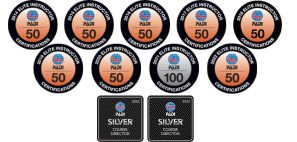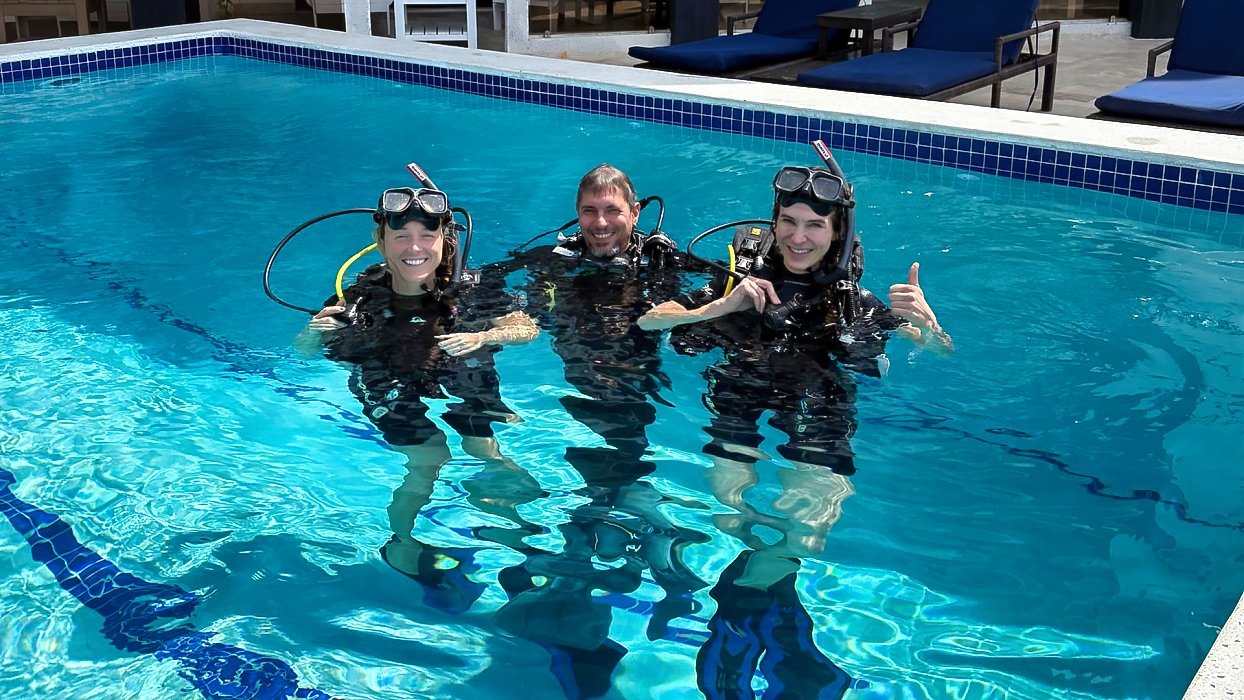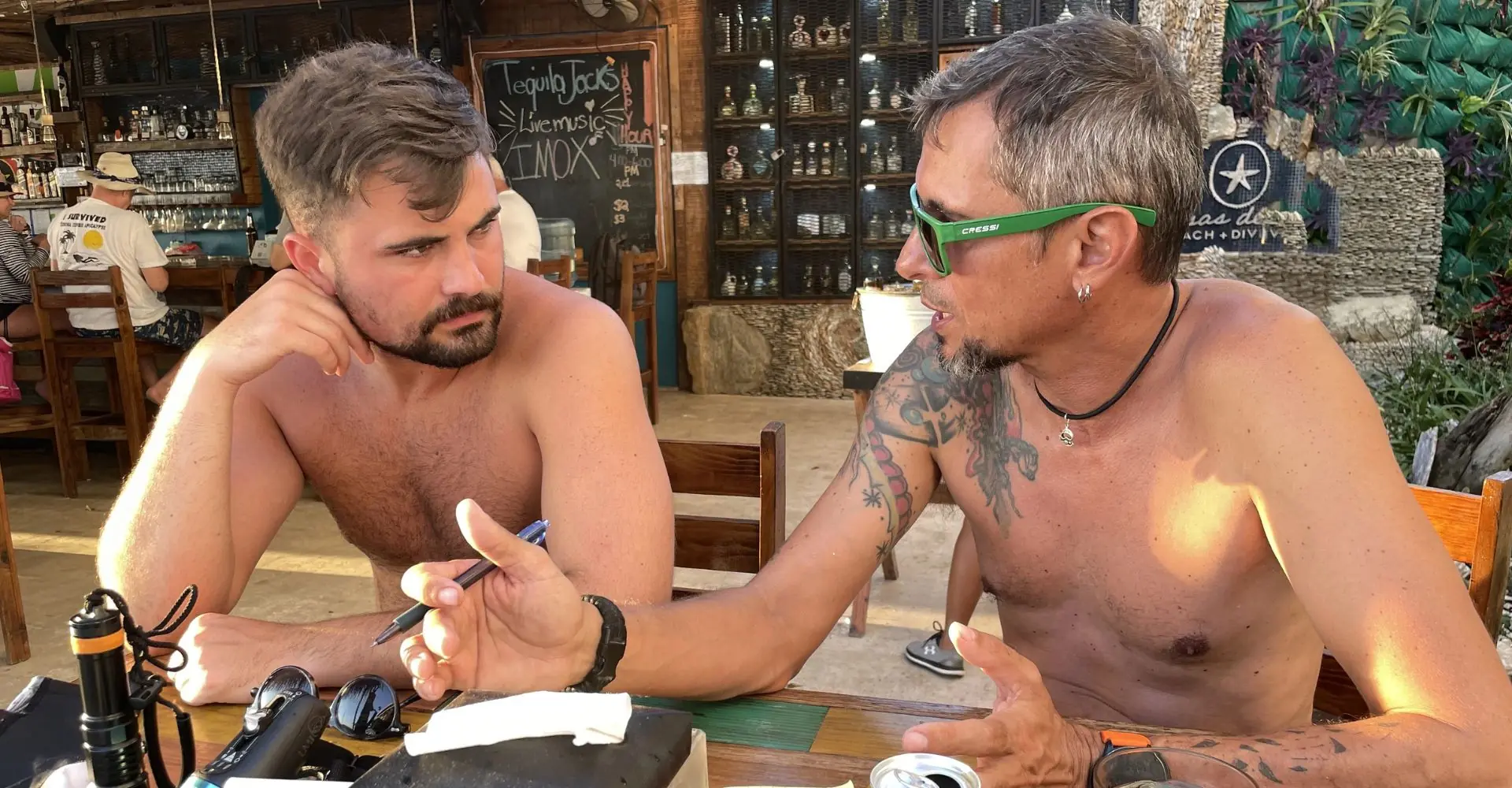
Becoming a dive instructor is often described as a dream come true, but I have seen how quickly that dream can turn stressful if the wrong choices are made. I once met a candidate in Roatan who had completed her IDC elsewhere and arrived at our dive shop feeling unprepared and overwhelmed. She had chosen her Course Director based only on price, thinking all IDCs were the same. When she faced her first real students, she realized the training she had received had left big gaps in her confidence and teaching skills. Stories like hers remind me that the Course Director you choose is not just another detail — it can shape your entire career path in diving.
Stories like hers remind me that choosing a course director is not just another detail — it can shape your entire career path in diving.
Why Choosing a Course Director Matters
When you enroll in an Instructor Development Course (IDC) in Roatan, you are not just learning how to teach scuba diving. You are also building the foundation of your professional identity. The right IDC course director can mentor you, share industry insights, and help you grow into a confident professional. On the other hand, poor guidance can leave you feeling unprepared and frustrated. From my own experience running IDCs in Brasil and Roatan, I know that personalized mentorship, real teaching practice, and constructive feedback make all the difference. That is why choosing a course director carefully is essential to long-term success.
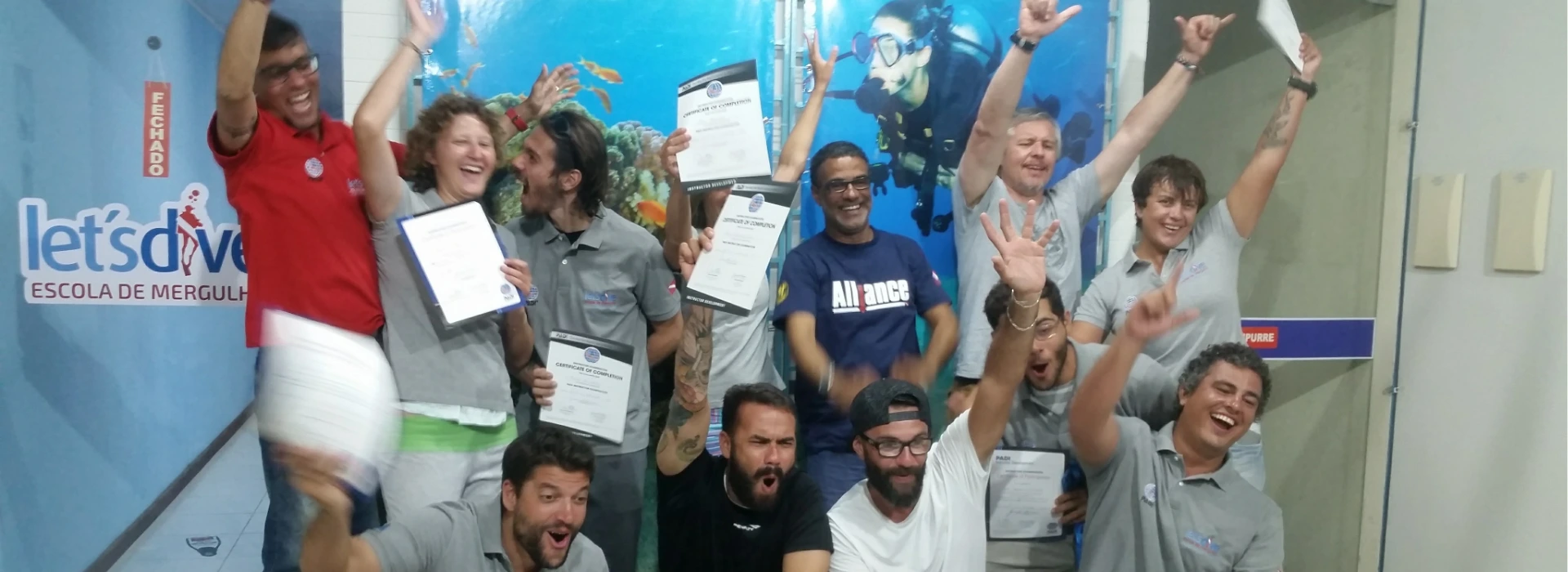
Key Questions to Ask Before Choosing a Course Director
Before committing to a program, set up a call with your potential CD. This is your opportunity to dig deeper and get the answers that will truly shape your experience. Do not just rely on glossy brochures or social media posts, instead ask clear questions that will help you understand the full picture of what your IDC will look like. Some of the most important questions include:
- What is your teaching style, and how do you support candidates after the IDC?
- What kind of pass rate do your candidates achieve at Instructor Exams?
- Do you offer any extra workshops during the IDC?
- Is it possible to join a program that includes the MSDT specialties?
- If I struggle with any subject, do you provide extra classes? If so, is there an additional cost?
- Do you offer any internship opportunities after the IDC is completed?
- Can I complete the theory part of the IDC through online classes with you?
- Where will we conduct our confined water sessions and open water dives [local sites, depth, visibility, etc.]?
- How long is your IDC, and do we have a break between the IDC and the IE?
Asking these questions upfront not only saves you from unpleasant surprises but also gives you confidence in your investment. Remember, this is your career, and you deserve complete clarity before committing. If you want even more preparation ideas, I recommend reading 8 Tips for Rocking the PADI Instructor Development Course (IDC).
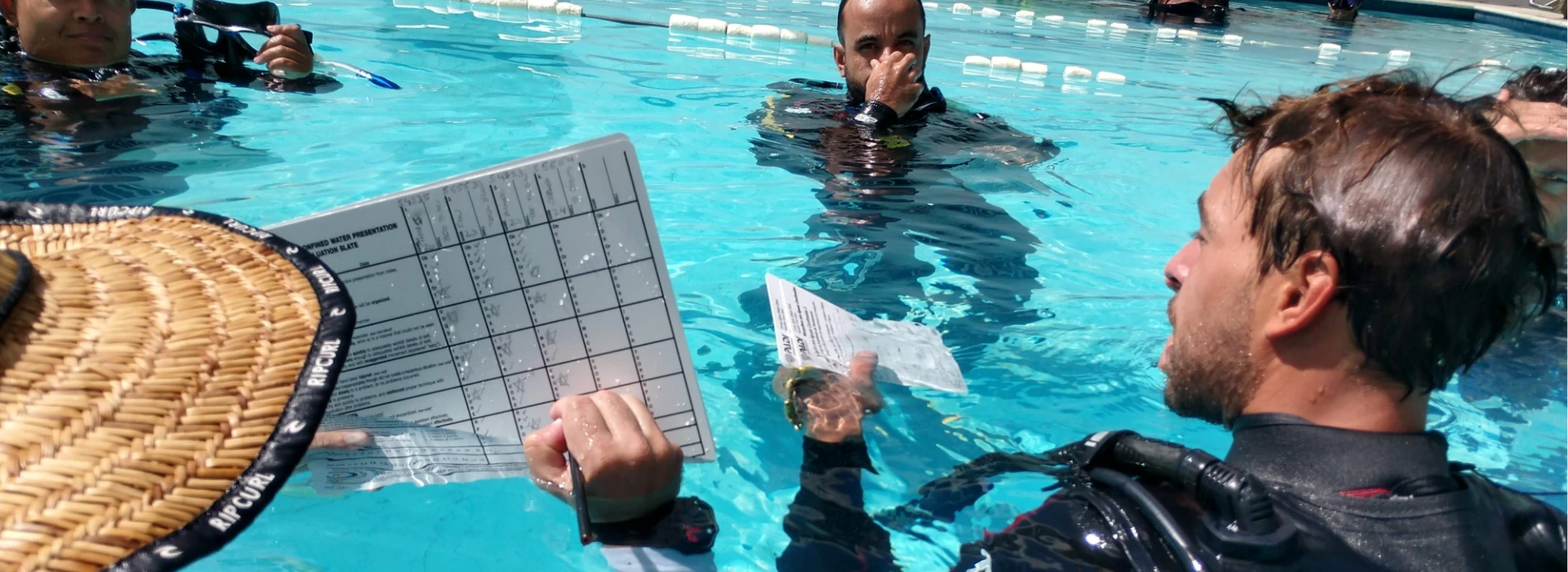
Cheaper is Not Always Better
I understand the temptation to go with the lowest price, especially when training already feels like a big investment. However, in scuba instructor training, cheaper often means cutting corners. Maybe the course is rushed, the class sizes are too big, or the facilities are not up to standard. Saving money in the short term could cost you far more in missed opportunities and stressful teaching experiences later. Quality training pays for itself when you are able to land better jobs and teach with confidence.
Course Director’s CV and Experience
When evaluating an IDC course director, look closely at their background. Some key points to consider include:
- Number of candidates trained — How many instructors have they certified?
- Breadth of experience — Do they also have dive shop management, consulting, or technical diving expertise?
- Active teaching status — Are they still regularly teaching Open Water, Advanced, and recreational specialties, or do they only run instructor and Tec-level programs?
- Relevance of experience — Imagine being trained by someone who has not taught an Open Water course for more than five years. Their guidance may feel out of touch with today’s diving realities.
The best course directors bring a wealth of knowledge that goes far beyond the PADI curriculum. For example, when I mentor candidates, I draw on years of managing dive shops in Brasil and Roatan, guiding recreational , Tec courses, and consulting dive centers worldwide. That real-world perspective helps candidates gain insights they can immediately apply to their own careers.
Evaluating IDC Facilities and Resources That Shape Your Training
A dive instructor development course is only as strong as the environment where it takes place. When evaluating IDC facilities and resources, look at:
- Dive shop setup — Is it organized, professional, and equipped to handle instructor training?
- Classrooms — Is there a dedicated teaching space for practicing presentations?
- Confined water and open water sites — Are they suitable for training [depth, visibility, and safety conditions]?
- Boats — Are they reliable, well-maintained, and designed for training logistics?
High-quality facilities create a safe, professional environment that supports your learning. At our dive center in Roatan, for example, candidates benefit from modern classrooms, dedicated training pools, and well-maintained boats, all of which make the IDC smoother and more professional.
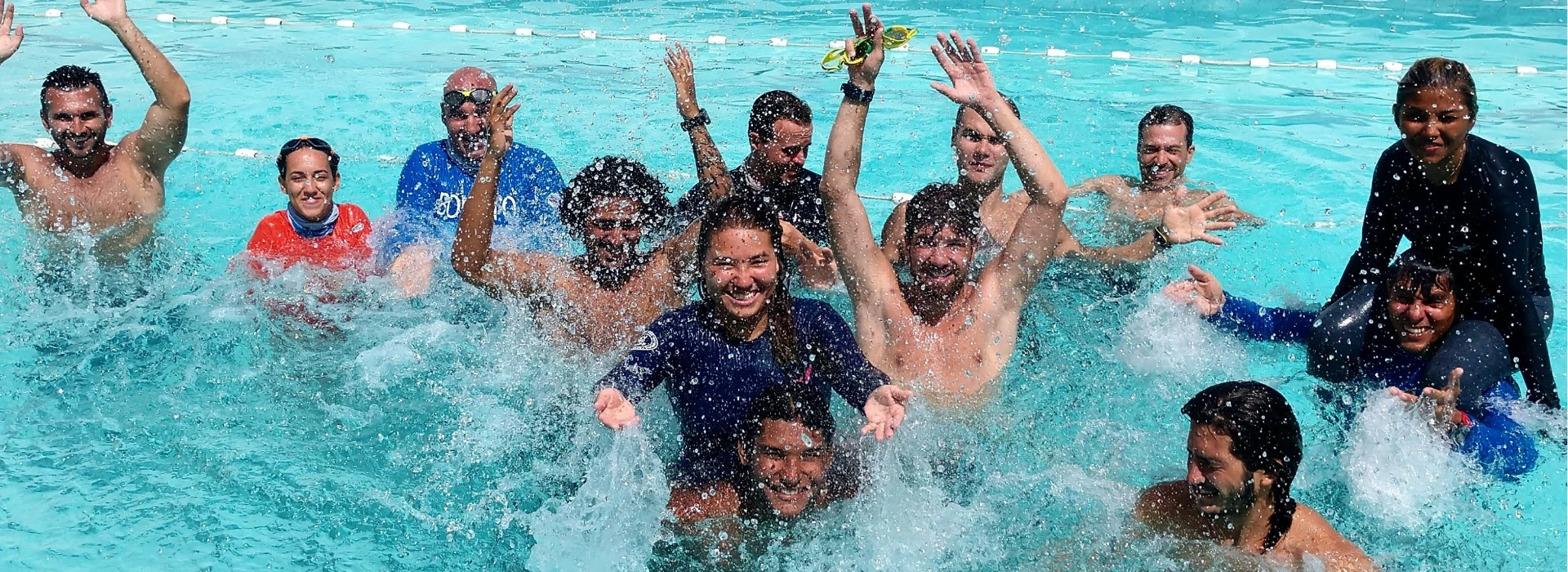
Building a Professional Relationship
The relationship you develop with your course director can last well beyond your IDC. A strong connection means you will have someone to turn to for advice, references, and opportunities in the future. Trust and communication are key. If you feel comfortable asking questions and receiving feedback, you are more likely to succeed. Many of my former candidates still reach out years later when they are ready for their next steps, whether that is a Tec course or progressing into leadership roles like the IDC Staff Instructor course. That ongoing mentorship is priceless.
Making the Final Decision
Choosing the right IDC course director and dive center is not something to rush. Compare your options, ask detailed questions, and trust your instincts. Look for a CD who not only prepares you to pass the exam but also invests in your future as a dive professional. If you want tailored guidance for your career path, consider exploring our Instructor Career Consulting services. Once you have clarity, commit fully and make the most of the experience. This decision will set the tone for your entire career, so take the time to get it right.
Before you go, I would love to hear from you. What questions do you think are most important when choosing a course director? Have you had positive or negative experiences with past training decisions? Share your thoughts in the comments, your story might help someone else make a better choice.
If you are ready to start your journey, schedule a call with me today. Together we can discuss your goals and design the right IDC experience for you. And remember, your professional growth does not stop at the Instructor Development Course. Once you are certified, you can continue advancing into leadership programs such as the IDC Staff Instructor course or move toward specialized paths like Tec diving. With the right Course Director by your side, your dive career can keep expanding for years to come.

